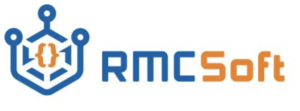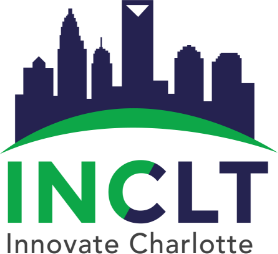The Programs, People And Platforms Behind Charlotte’s Entrepreneurial Growth
This spring, the Small Business Technology Development Center (SBTDC) at UNC Charlotte launched an initiative designed to serve those at the very beginning of the entrepreneurial process.
It’s called Business Launch, and it’s part of a statewide initiative intended to help people across the state turn their ideas into businesses, said Mike Barugel, the Business Launch specialist at the SBTDC.

“Traditionally, our organization helps a lot of people who are already in business, so now the requirements have shifted to put us more in the startup space and helping businesses launch,” Barugel explained. “Right now, the target market is anyone who might be thinking about starting a tech-oriented, scalable or innovative business of any kind.”
The core offering is a 4-week program called “Taking the Leap,” which is designed to provide prospective founders with a baseline understanding of what it takes to start a business. It culminates with a pitch competition in front of members of the Charlotte startup ecosystem. And the entire thing is free.
Business Launch is just the latest program for entrepreneurs in the Queen City — and another sign that the city’s startup scene is growing fast, said Keith Luedeman, executive director at Innovate CLT, itself a relatively new organization created to unite the disparate pieces of the Charlotte startup ecosystem and foster even more growth.
“While metrics related to investment, job creation and valuation are certainly signs of success for any entrepreneurial community, so is the number of programs that pop up to serve that community. We wouldn’t need resources if we weren’t flooded with driven people trying to capitalize on innovative ideas,” Luedeman said.
Barugel was one of those people. He moved to Charlotte two and a half years ago and started a virtual assistant business out of Advent’s coworking space. Through Advent, Barugel also learned about INCLT and the organization’s Venture Mentoring Service, which he took part in for nine months. All of that helped him build connections, which led to his current role at SBTDC.
“I feel like it’s a really great fit, and I attribute attaining the role and the early success I’ve had to starting a business myself and being able to tap into so many resources, educational opportunities, trainings, workshops — not just through Advent but throughout the whole ecosystem in Charlotte,” Barugel said.
So, what exactly does Charlotte have to offer its entrepreneurs? Take a look at some of the many programs the Queen City has to offer:
Mentorship
INCLT’s Venture Mentoring Service is one option, modeled after a similar program at MIT and designed to pair founders who have gained some traction in their businesses with a team of mentors selected specifically for the needs of the startups and their founders. The service is free for entrepreneurs, but founders must apply and be accepted to take part.
In addition, the local chapter of SCORE, the nation’s largest network of volunteer business mentors, can pair entrepreneurs with mentors from all kinds of industries and backgrounds, for free.
And the Small Business Center at Central Piedmont Community College offers no-cost business counseling services, in addition to free seminars, networking events and a business resource library.
Community
No founder can succeed in a vacuum. You need a community to grow your business, to collect valuable insight and feedback, and to find investors and other resources. And Charlotte has a number of ways to build it.
Coworking is a big one, as Barugel described. There are now roughly two dozen coworking options in the Queen City, each offering their own events, services and opportunities to forge connections.
There are also organizations that provide programming and opportunities to network with other founders, investors and members of the community. BLKTECHCLT, for instance, is dedicated to developing black tech talent and entrepreneurs across Charlotte. Collective Hustle hosts panel discussions and other events focused on diversity in the startup community, particularly as it relates to women. BIG (Business Innovation & Growth) is a membership organization for high-profile entrepreneurs, creating safe space for meaningful, peer-to-peer exchanges. One Million Cups is a gathering that brings together entrepreneurs on the first Wednesday of every month to improve their companies, increase visibility and get feedback. F*ck Up Night at Advent allows entrepreneurs to share their startup mistakes, setbacks and failures in a friendly environment — and members of the community to learn from their mistakes. And a group called Finsiders comes together regularly to discuss the intersection of banking, design and technology.
Development
There are also resources designed specifically to help founders improve, grow and get funding.
PitchBreakfast, for instance, is a free event that allows founders to pitch to investors for educational purposes only. There is no money at stake; it’s purely an opportunity to collect feedback and make a startup pitch stronger.
Accelerator and incubator programs such as the ones offered by Queen City Fintech, Carolina Fintech Hub, the Joules Accelerator and City Startup Labs offer training, mentorship and overall startup development for founders from different backgrounds and industries.
And university-based programs such as the SBTDC’s Business Launch program and Ventureprise, which provides resources to help startups commercialize their innovations and scale their ventures, offer platforms for free or low-cost education — critical in the development of a business.
Funding
The goal for many startups is to seek funding, and the opportunities to do that within the Charlotte community are growing.
There are networks of angel and venture investors, such as Charlotte Angel Fund and VentureSouth. But there are also other avenues entrepreneurs can explore: NC IDEA, for instance, is a private foundation that provides grants and other programs for eligible startups. Charlotte Venture Challenge gives UNC Charlotte students a chance to compete for startup funding. And the Carolina Small Business Development Fund provides loans to help entrepreneurs start or grow their businesses. There are also active venture capital organizations such as CVF Ventures, Task Force Capital and Idea Fund Partners.
For Barugel, all of that is a sign that Charlotte is headed in the right direction when it comes to entrepreneurship.
“There’s a real grassroots feel to the startup scene here. In some ways, it still feels a little disjointed, and in other ways, it’s starting to come together,” he said. “There are meetup groups happening everywhere. The coworking spaces are doing a great job giving folks a platform. Sometimes I forget that we’re lucky.”
 Startups play a role in that growth, too, particularly in supporting the community as a whole. RMCSoft, for one, has pledged its support to help INCLT spread the word about what’s new in Charlotte’s entrepreneurial community. If you’re a startup who would like to give back to the community at large, let us know. We’ve got ideas for how everyone can get involved.
Startups play a role in that growth, too, particularly in supporting the community as a whole. RMCSoft, for one, has pledged its support to help INCLT spread the word about what’s new in Charlotte’s entrepreneurial community. If you’re a startup who would like to give back to the community at large, let us know. We’ve got ideas for how everyone can get involved.
For more on the startup resources available in the Queen City, check out the StartCharlotte guide here.
INCLT is currently accepting applications for companies and mentors looking to take part in the Venture Mentoring Service.
Apply to get a team of mentors
Apply to become a mentor with INCLT
Want to learn more about how to support INCLT? Contact Igor Gorlatov at [email protected].
